Recent Blog Posts
Rare Win for a Client With Ulcerative Colitis Following Tetanus, Diphtheria and Pertussis and Hepatitis A Vaccines
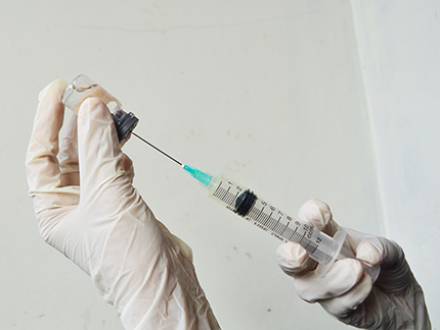 Kraus Law Group recently secured a win for a client who developed ulcerative colitis following vaccinations.
Kraus Law Group recently secured a win for a client who developed ulcerative colitis following vaccinations.
Our client, a healthy and active 35-year-old man, received the Tdap and Hepatitis A vaccines in anticipation of international travel. Within a week, he began to experience the initial gastrointestinal symptoms that were ultimately diagnosed as ulcerative colitis. Our client has experienced a very difficult disease course, including suffering a stroke related to his condition, and multiple hospitalizations for stabilizing care. Given the disruptive nature of his illness, his career and quality of life have both been profoundly affected.
To handle this complex matter, our firm retained medical experts in gastroenterology and immunology to explain to the presiding Special Master how and why the vaccines our client received triggered his condition. After years of litigation, the Court held a trial, or hearing, on the issue of causation to hear testimony from our client and our medical experts as well as from the government’s expert witnesses, both of whom disputed that the vaccines caused or contributed to our client’s illness.
Possible Changes to the National Vaccine Injury Compensation Program (NVICP) on the Horizon
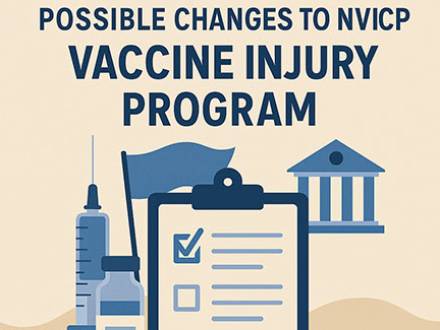 It’s no secret that vaccine policy has been in the news lately. Recent statements by the Secretary of Health and Human Services (Secretary) indicate that the VICP is under scrutiny from federal health officials and that significant changes could be proposed in the near future. When, and if, changes will be made to the NVICP is unknown, but there is a protocol for the Secretary to follow that applies to most aspects of possible program changes.
It’s no secret that vaccine policy has been in the news lately. Recent statements by the Secretary of Health and Human Services (Secretary) indicate that the VICP is under scrutiny from federal health officials and that significant changes could be proposed in the near future. When, and if, changes will be made to the NVICP is unknown, but there is a protocol for the Secretary to follow that applies to most aspects of possible program changes.
Through the administrative rulemaking process, the Secretary’s proposed changes would be submitted to the Federal Register for publication. This allows the public to learn about the proposed changes and even to submit comments on the proposals. While details of any proposals are not available to the public yet, proposed rule changes do not necessarily mean that the rule will become final. Instead, the rulemaking process allows for public feedback that can impact the final rule that is adopted. At times, proposed rules have even been withdrawn after public feedback.
Client With Severe Sirva Injury Awarded Near Record Damages for Pain and Suffering
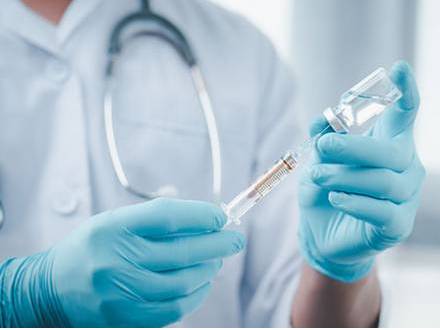 Our firm is pleased to report that Kraus Law Group partner, Brynna Gang, recently secured a substantial damages award for a client that suffered a life-changing SIRVA injury.
Our firm is pleased to report that Kraus Law Group partner, Brynna Gang, recently secured a substantial damages award for a client that suffered a life-changing SIRVA injury.
Our client, a healthy, active person and parent of a young child, suffered a severe SIRVA injury following a flu vaccination in 2017. Over the next eight years, she struggled with a protracted, painful, and debilitating SIRVA injury. Her treatment course ultimately involved many steroid injections, medication management, a year of weekly lidocaine infusions to try to manage her chronic pain, many sessions of physical therapy, and ultimately, four surgical interventions. While her final surgical procedure brought her some much-needed pain relief, she struggled with ongoing deficits.
This case required years of thorough attorney work, including drafting memoranda arguing for the presiding Special Master to make a judicial finding that the flu vaccine caused our client’s SIRVA injury after the Secretary of Health and Human Services (respondent), represented by attorneys at the Department of Justice (DOJ), argued that the flu vaccination was unrelated to our client’s SIRVA injury. Ultimately, the Special Master found in our client’s favor and held that the flu vaccine had indeed triggered her significant and life changing SIRVA injury.
Damages Award for an Injured Child Ensures Lifelong Financial Support
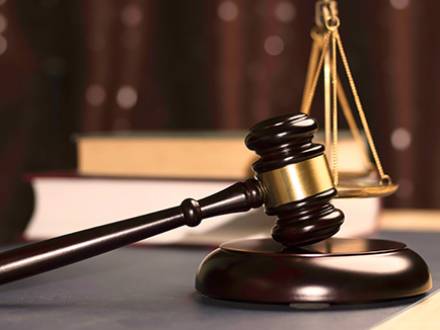 After years of advocacy, we are pleased to report that one of our long-time client’s was recently awarded compensation that will allow her to have the support she needs for the rest of her life.
After years of advocacy, we are pleased to report that one of our long-time client’s was recently awarded compensation that will allow her to have the support she needs for the rest of her life.
Our client developed a seizure disorder following her 9-month-old vaccinations. After multiple seizures, some requiring hospitalization, she was diagnosed with epilepsy and global developmental delay after her family witnessed developmental regression.
We filed a case in the Vaccine Injury Compensation Program (VICP) alleging that the vaccines our client received triggered her seizure disorder which ultimately led to, and/or worsened, her developmental regression and delay.
Initially, the Special Master (a/k/a Judge) denied our client’s case, and attorney Ed Kraus appealed the decision, arguing that the special master had made legal errors in deciding the case.
Ultimately, that appeal was successful and in a prior blog post, we discussed that our client has been found entitled to compensation, meaning that she would receive the funding necessary for her to be supported throughout her life. You can read about that here.
Guillain-Barre syndrome and Vaccination
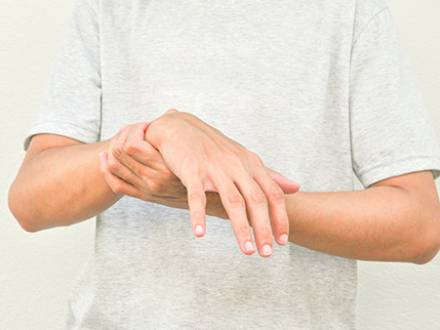 Guillain-Barre syndrome (GBS) is a neurologic syndrome in which a person’s immune system attacks the nerves. Symptoms can include weakness, numbness and an ascending paralysis. Guillain-Barre syndrome is a serious condition and medical intervention in vital.
Guillain-Barre syndrome (GBS) is a neurologic syndrome in which a person’s immune system attacks the nerves. Symptoms can include weakness, numbness and an ascending paralysis. Guillain-Barre syndrome is a serious condition and medical intervention in vital.
While the trigger for GBS is not entirely known, there has been an association with vaccination, particularly the seasonal flu vaccination.
In the 1970’s, the US government mounted a mass vaccination campaign designed to vaccinate adults against specific influenza strains. The campaign was suspended when an increased number of GBS cases was observed and after a surveillance period, it was discovered that there was an increased risk of developing GBS in the weeks following receipt of the flu vaccination. This evidence of association was only possible because of the large numbers of persons that were vaccinated in a short time period, which made the pattern easier to discern.
Kraus Law Group’s Advocacy Nets Seven Figure Award for Permanently Injured Client
In 2016, Kraus Law Group, LLC, filed a Petition in the Vaccine Injury Compensation Program on behalf of a woman who developed a life-threatening lung disease following a flu vaccination.
Our client received a flu shot in 2014, just before she came down with a respiratory virus. Unfortunately, the impact of the immune response she mounted to that virus, while also responding to the flu vaccination led to scarring in the lining of her lungs that caused breathing difficulties, a chronic condition known as bronchiolitis obliterans.
After filing the case, our team, led by founding partner, Ed Kraus, retained an expert immunologist who testified at an in-person hearing held in Washington D.C. in 2020.
In a decision from 2023, the presiding Special Master found that the flu vaccination played a pivotal role in the development of our client’s lung disease and found her entitled to compensation.
While the decision by the Special Master meant that our client was eligible to receive compensation for her life-changing vaccine injury, securing the compensation she needed to ensure she had lifelong support was another battle.
Kraus Law Group, LLC Welcomes New Partner
With the start of a new year, Kraus Law Group, LLC, promoted vaccine injury attorney, Brynna Gang, to Partner.
Ms. Gang joined the firm as an attorney in 2020 and since then has zealously represented individuals injured by vaccines in the Vaccine Injury Compensation Program (VICP), adding her energy, skill and commitment to the vibrant culture of the firm.
Ms. Gang's interest in the VICP began when she was a student at Chicago-Kent College of Law where she participated in one of only two legal clinics in the country that represented people in the VICP. That clinic was created and directed by Kraus Law Group founding member, Ed Kraus, and staffed by attorney Amy Kraus. It was while studying in that clinic that Ms. Gang realized that working on behalf of vaccine injured petitioners was her passion.
After graduating and becoming a licensed attorney, Ms. Gang gained valuable advocacy and litigation experience in other areas of law, including Social Security Disability and Medical Malpractice defense, but always had the primary goal of returning to work on behalf of petitioners in the VICP. When an opportunity arose to work with the Krauses first at Chicago Kent, and then at the Kraus Law Group, Ms. Gang enthusiastically joined the team.
Vaccine Policy Expected to be Front and Center at Confirmation Hearings for Nominee Health and Human Services Secretary
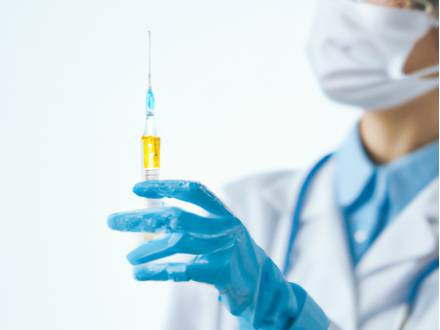 With the nomination of Robert Kennedy, Jr., as the next Secretary of Health and Human Services (HHS), vaccine policy is expected to take a starring role in the confirmation hearings.
With the nomination of Robert Kennedy, Jr., as the next Secretary of Health and Human Services (HHS), vaccine policy is expected to take a starring role in the confirmation hearings.
The Vaccine Injury Compensation Program (VICP) is a federal compensation program designed to compensate individuals injured by covered vaccinations. While the Program was initially established by Congress in 1986, the Department of Health and Human Services plays a critical role in the VICP.
When a case is filed in the VICP, the Department of Health and Human Services is listed as the respondent. As the head of that department, the Secretary of Health and Human Services is named in every case filed in the VICP.
In addition to being the respondent, HHS also functions as an administrator of the VICP, for example, proposing modifications to the Vaccine Injury Table. With these important functions, the Secretary of Health and Human Services plays an important role in how the VICP works and the Secretary is in a position to make meaningful changes to the VICP.
How do we address COVID-19 vaccine injuries? Two different viewpoints emerge.
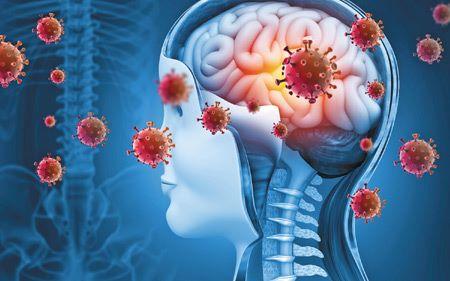
As we head into the third year of Covid-19 vaccinations being offered to the public, differing viewpoints have emerged as to how to address compensation for individuals injured by Covid-19 vaccinations.
Recently, a lawsuit was filed against the agency within the U.S. Department of Health & Human Services that handles Covid-19 vaccine injury claims. The litigation alleges that the vaccine program handling Covid-19 vaccine injuries is unconstitutional.
The Vaccine Injured Petitioner’s (VIP) Bar Association provides education and advocacy for the representatives of individuals injured by vaccinations. KLG attorneys, Ed Kraus, Amy Kraus, and Brynna Gang are members of the VIP Bar and KLG founding partner, Ed Kraus, is also on the Board of Directors.
As attorneys that practice only in the Vaccine Injury Compensation Program, we understand the unique challenges faced by an individual injured by a vaccination.
The VIP Bar recently issued a press release which urges that Covid-19 vaccination injury claims be processed in the Vaccine Injury Compensation Program and discusses the recent litigation related to the current program in which Covid-19 vaccination injuries are being reviewed.
Bills to Add Covid-19 Vaccine Injuries to Vaccine Injury Compensation Program (VICP) Introduced in the House
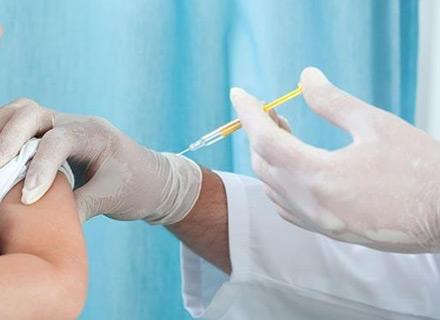
Almost three years after the introduction of Covid-19 vaccines, two Bills (H.R 5142 and H.R.5143) introduced in the House of Representatives aim to make significant changes to the way injuries from Covid-19 vaccinations are handled.
Currently, injuries suspected to stem from Covid-19 vaccinations are handled in a program called the Countermeasures Injury Compensation Program (CICP). You can find our blog about that program, and its differences compared to the Vaccine Injury Compensation Program (VICP) here.
A major drawback of the CICP is the short one-year statute of limitations which requires that claims be filed within a year of vaccination.
Importantly, no later than sixty (60) days after the Bill’s passage, the Secretary of Health & Human Services (HHS) would need to form regulations to add Covid-19 vaccines to the Vaccine Injury Table. This would effectively add Covid-19 vaccination injuries to the VICP, a program that is significantly friendlier to the injured petitioner and provides for greater categories of compensation, including pain and suffering (which is not a source of damages in the CICP).






